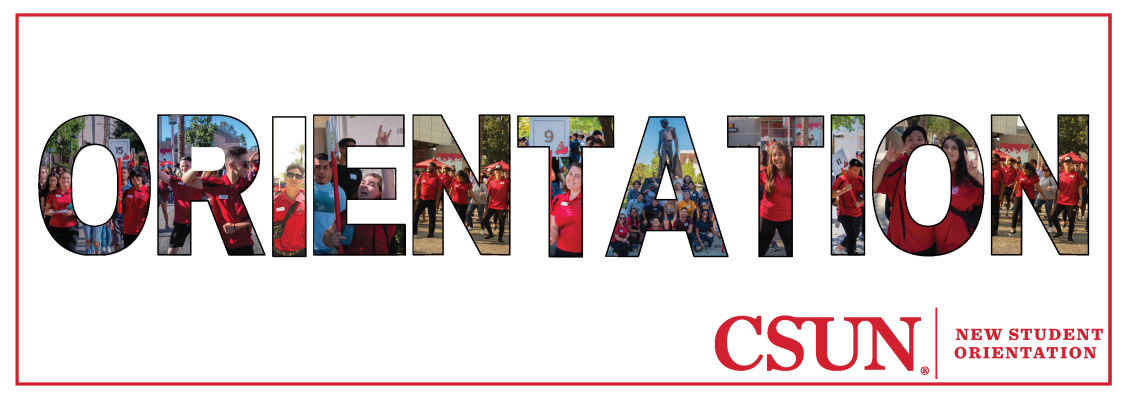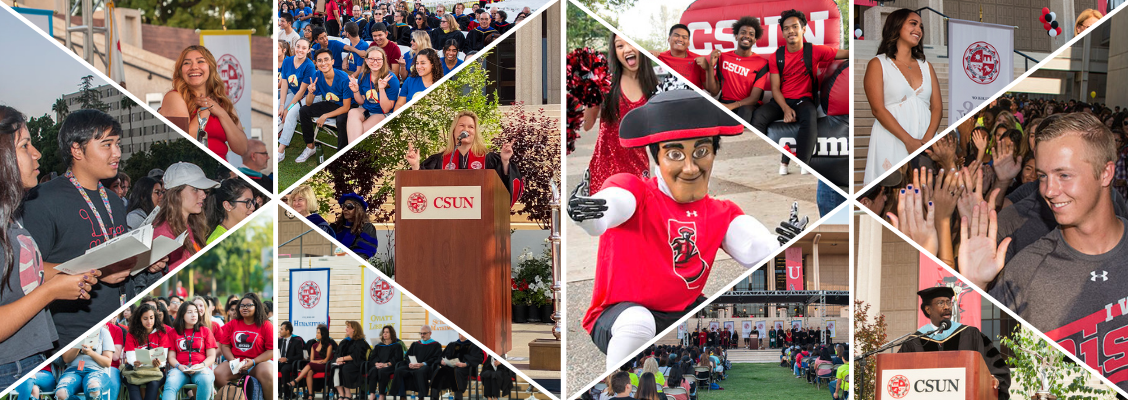An email will be sent to incoming students when NSO Registration is made available.
Spring 2025 International Orientation Date| Wednesday, January 15 | 8:00 AM - 2:00 PM |
We look forward to seeing you at your New Student Orientation. Here are some essential tips and reminders:
- Mandatory Information- Orientation information is mandatory and you are expected to participate in the full program.
- Cost to attend
- A mandatory fee of $75.00 dollars will be automatically billed to your student account
- User ID - There will be time for you to register for the Student Recreation Center (SRC) after the Orientation, which will require you to have your User ID (also referred to you as your "Moodle login").
- F-1 Freshman & Transfer Students (Undergraduate Level who wish to obtain a Bachelor Degree): An academic advisor from Undergraduate Studies will be speaking with you and can perhaps answer general questions on class scheduling. F-
- F-1 Graduate Students (Graduate Level who wish to obtain a Masters or Doctoral Degree): Graduate Students may attend NSO coordinated out of our office; however, there is also a “New Graduate Student Orientation” program provided through the office of Research and Graduate Studies. For more information on that event please click here.
- F-1 Academic Advisement - Be sure to see an academic advisor if possible BEFORE your New Student Orientation to help you with class selection if possible.
- If you are in the United States, you are encouraged to schedule a meeting with one of the International Academic Advisors in the Office of Undergraduate Studies by calling 818-677-2969 or emailing ugs.intladvisor@csun.edu.
- Bring your unofficial transcripts for all courses taken at a community college or another four-year university to your advisement meeting.
- Students outside of the U.S. and arriving on July 23 or later, are also encouraged to email ugs.intladvisor@csun.edu for questions.
- Schedule of Classes - It may be helpful for you to bring your schedule of classes with you as you'll have an opportunity to identify buildings with your Orientation leader.
- Orientation Payment— The mandatory non-refundable $75.00 fee issued for Orientation should be paid as soon as possible. This fee could be paid through the "My Checklist" portion of your student portal or by visiting Cash Services, which is located in the first floor of Bayramian Hall. This is a separate fee from tuition and cannot be paid with money awarded by Financial Aid. If you have any questions regarding the Orientation fee, please contact University Cash Services (818) 677-8000 or university_cash_services@csun.edu.
- Contact the orientation staff at orientation@csun.edu or call us at (818) 677-4100 and ask to speak to someone regarding Orientation should you have any questions or concerns.
In keeping with the goal of New Student Orientation, we have designed this program to meet the needs of incoming international students.
Below are a listing of program components with their associated Student Learning Outcomes (SLOs) which have been developed in collaboration with the Orientation Advisory Committee which represents 20+ departments from across the campus dedicated to student success as they transition into CSUN.
Component: Campus Tour & Group Meetings
Orientation leaders will conduct a tour of major of campus facilities highlighting areas of interest to new students transferring into CSUN. New Students will be matched to specific orientation leaders/touring groups based off of similar college/major related areas of study.
Learning Outcomes
New students will be able to:
- Establish at least one interpersonal connection with a peer of sufficient depth.
- Identify at least one peer who could serve as a resource and support that would continue after New Student Orientation.
- Express familiarity with the physical layout of the campus.
- Identify the location of campus buildings, parking structures and lots, and more specifically where their classes will be held.
Component: STUDENT LIFE & INVOLVEMENT
Component(s): Campus Resources & Services
Occurring in two parts, these components introduce new students to key service areas of the campus promoting resources designed to support academic, social, and cultural needs to enable success. Location, hours of operation, and accessibility are also covered.
PART 1 (VIDEOS & DISCUSSION) – Using a variety of short videos, students will be provided information and examples of what student life looks like on campus. Departments highlighted include Housing & Conference Services, Student Involvement & Development, Associated Students, the University Student Union, and the International & Exchange Student Center. After videos are viewed, staff and student mentors provide additional details and open up for a questions & answers.
PART 2 (TABLING FAIR) – Campus Departments/Service areas directly interface with new students providing promotional materials and answering general questions.
Learning Outcomes:
New Students will be able to:
- Express familiarity with key campus services and resources that are available to them.
- Identify areas on campus and be able to state services available within these areas.
Component: Steps to Academic Success
Presented by the International Advisor from Undergraduate Studies (Freshman), or by college student service center staff (transfer) students will become familiar with the CSUN College structure (contacts, resources and who to know). Additionally, information will be provided regarding the University Catalog, Schedule of Classes, www.csun.edu/portal, "DPR", Upper Division Writing Proficiency Exam and other general information. Various topics are addressed including: Differences between US Universities/Community Colleges, myths and truths of an American College, campus/local/state and federal laws as they relate to student safety and well-being – including sections on Title IX, sexual assault, Violence Against Women Act, student records, and FERPA rights.
Forms and deadlines on taking control of one's own education will also be highlighted. If you haven’t registered for classes at the time of this program, further information will be available for you on how to navigate through the next steps.
Learning Outcomes
New students will be able to:
- Know available resources students have access to concerning academic success, including the University Catalog, Schedule of Classes and “How To” guides.
- Identify the basic university and academic college structure.
- Understand the requirements/components in obtaining a degree as well as tools that will enable them to manage their own path to graduation.
- Develop a familiarity with the utility EOP Satellite Centers.
Component: Immigration Briefing
Through an interactive discussion format, this component will assist in reminding new students about current immigration regulations, policies, and procedures as they pertain to legal F1 student status.
Learning Outcomes
New students will be able to:
- Become more aware of immigration policies as they relate to incoming international CSUN students and/or materials available to them where these policies can be viewed.
- Become more familiar with the functionality and process of the typical university classroom.
Component: Classrooms & Community
A trained faculty or staff member facilitator will provide an interactive discussion regarding the university classroom, including differences between high school and college, appropriate classroom conduct, meeting faculty expectations, ethical issues (i.e. cheating, plagiarism including using the Web and internet resources for cheating), and campus community standards. This facilitation will also focus on campus, local, state, and federal laws as they relate to student safety and well-being – including sections on Title IX, sexual assault, Violence Against Women Act, student records, and FERPA rights, etc.
Learning Outcomes:
Through this component, new students will:
- Have awareness of appropriate classroom conduct.
- Become aware of university academic expectations as it relates to the student conduct code, and its references to cheating and plagiarism.
- Become aware of the university’s services, resources, and responses surrounding various laws, policies, and executive orders promoting student safety and education (incl. AB 1088, EO 1098 - Title IX, Sexual Assault, Violence Against Women Act, FERPA, etc.)
- Have awareness of what to do should an active shooting take place on campus.
Please visit our FAQs page to better prepare you for your orientation experience.


